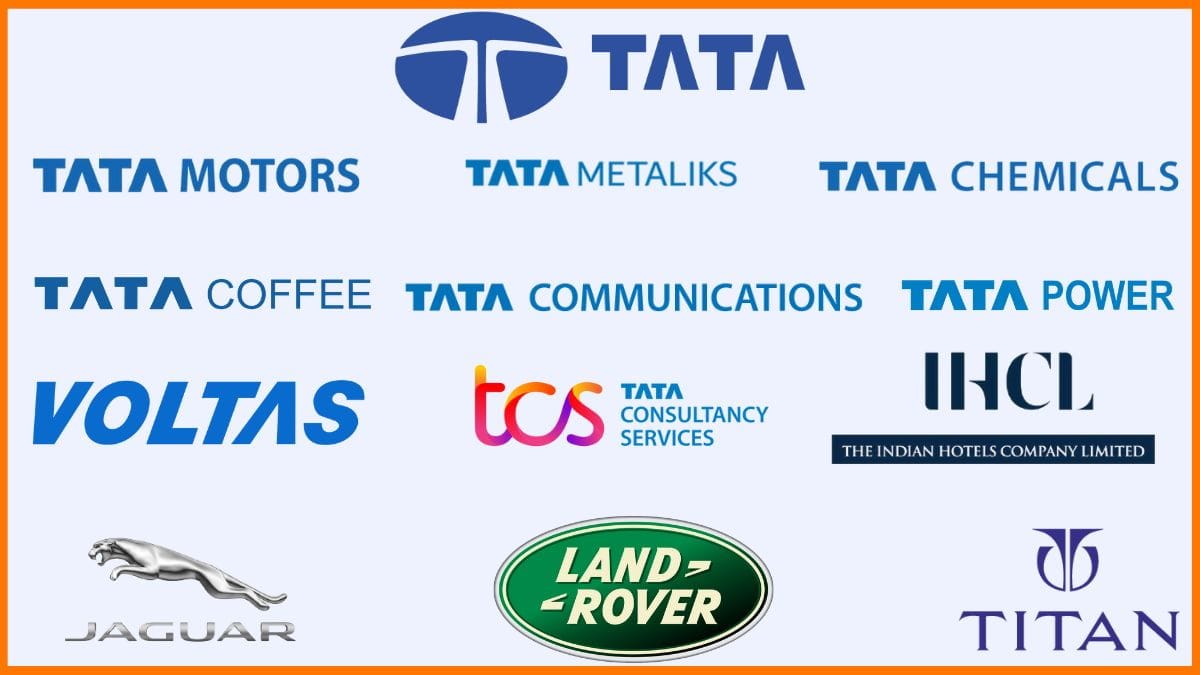The Tata Group, an iconic conglomerate founded in 1868, is synonymous with Ratan Tata‘s name. For decades, Ratan Tata, one of India’s most respected industrialists, has been at the helm, shaping the direction of the group and enhancing its global footprint. Though he officially retired in 2012, his influence continues to be felt throughout the organization. Inevitably, discussions have arisen about how the Tata Group—and particularly its publicly traded stocks—might respond to the eventual demise of Ratan Tata, a figure whose legacy looms large.
In this blog, we’ll explore various factors that could influence Tata shares in the aftermath of such an event. While it’s impossible to predict market reactions with complete certainty, there are historical precedents and economic factors that offer insight.
1. Immediate Emotional Reaction
The stock market is highly sensitive to significant news events, especially when they pertain to prominent figures like Ratan Tata. Upon his passing, there will likely be an initial emotional response from investors, especially in the Indian market.
Short-Term Volatility
- Sentiment-Driven Selling: Investors may react emotionally, fearing uncertainty in leadership and the future of the Tata Group. This could lead to short-term selling pressure on Tata stocks.
- Media Coverage Impact: Extensive media coverage will amplify public awareness, potentially influencing investor sentiment negatively, at least for the first few days.
- Market Correction Potential: However, market reactions to such news are often short-lived. Tata Group companies are professionally managed and are not reliant on Ratan Tata for day-to-day operations.
Comparative Historical Events
- When iconic business leaders pass away, there’s usually a temporary drop in stock prices. For example, after Steve Jobs’ death in 2011, Apple stock dipped but quickly rebounded as Tim Cook stepped in with strategic clarity. In Tata’s case, the response may be similar, with the group’s strong fundamentals helping stabilize the stocks over time.
2. Long-Term Business Continuity and Leadership
While Ratan Tata’s leadership undeniably brought the group to new heights, the Tata Group has successfully institutionalized governance mechanisms that should ensure stability long after his passing.
Strong Leadership Transition
- Post-2012 Leadership: Since Ratan Tata stepped down as chairman in 2012, the group has been managed by Cyrus Mistry (2012–2016), and later N. Chandrasekaran, who has led Tata Sons since 2017. Chandrasekaran’s leadership has been widely praised for stabilizing the group and steering it toward new growth avenues, including digital transformation and renewables.
- Corporate Governance: Tata Group’s corporate structure is designed to maintain continuity. Tata Sons, the holding company of the group, has a robust board and governance practices. The presence of the Tata Trusts, which hold a significant stake in Tata Sons, ensures that decisions are made with long-term sustainability in mind.
Succession Planning
Tata Group has always emphasized its forward-thinking approach to leadership succession. After stepping down, Ratan Tata has largely stayed away from operational roles, showing the group’s ability to transition without any adverse effect on its performance. This will reassure investors about the group’s capacity to handle his demise with minimal disruption to its core functioning.
3. Business Fundamentals of Tata Group Companies
Tata Group’s individual listed companies—like Tata Motors, Tata Steel, TCS (Tata Consultancy Services), Tata Power, and others—are leaders in their respective industries. The market often focuses more on the financial performance and future prospects of these companies than on individual leadership personalities, especially once leadership transitions are complete.

Tata Consultancy Services (TCS)
TCS is the crown jewel of the group, contributing a significant portion of the conglomerate’s profits. As a technology services leader, TCS’s business model is stable and does not hinge on individual personalities, even ones as iconic as Ratan Tata. TCS’s stock is likely to remain resilient, backed by strong earnings growth and a robust client base.
Tata Motors
Tata Motors, particularly its luxury brand Jaguar Land Rover (JLR), may face some short-term turbulence due to any market overreaction. However, the company’s strong recovery from previous challenges and its push toward electric vehicles position it well for long-term growth. Investors may initially worry about the direction of the company’s ambitious plans post-Ratan Tata, but strong leadership should ensure continued innovation.
Tata Steel
Tata Steel is another key component of the group. The steel industry, while cyclical, is driven by global demand and commodity prices. Tata Steel’s leadership has navigated tough industry cycles before, and its diversification into Europe (through the acquisition of Corus) ensures that its performance is governed more by global steel prices and production efficiencies than by leadership changes.
Other Companies
Companies like Tata Power, Tata Chemicals, and Titan are similarly driven by industry fundamentals and operational efficiency. Ratan Tata’s vision may have shaped their strategic direction, but day-to-day business operations are now in the hands of capable leaders.
Also Read : India’s Forex Reserve Hit Record High of $700 Billion
4. The Role of Tata Trusts and Philanthropy
Ratan Tata’s influence is also deeply intertwined with the charitable mission of Tata Trusts, which owns 66% of Tata Sons. The Trusts are committed to philanthropy, using the dividends from Tata Sons to support initiatives in education, healthcare, and rural development. Ratan Tata’s passing is unlikely to alter this fundamental mission, as the Trusts are managed separately with a strong governance framework.
Investors might be concerned about the direction of Tata Trusts and whether a shift in philanthropic focus could impact Tata Sons and, by extension, the listed companies. However, the Trusts are governed by clear mandates, and a successor will likely continue to uphold the legacy of balancing profitability with social responsibility.
5. Broader Market Conditions and Economic Factors
Market reactions to any significant event, such as the demise of a prominent figure like Ratan Tata, are often influenced by broader market conditions. If the global or Indian stock market is in a bullish phase, the negative impact could be cushioned. On the flip side, if there is bearish sentiment, investors might overreact, leading to a sharper decline.
6. Legacy and Brand Value
Ratan Tata’s legacy extends beyond business success. He is admired for his ethical approach, commitment to philanthropy, and efforts to make Tata a globally respected brand. This legacy will endure, and while his death may cause short-term market jitters, his long-term vision will continue to drive the group forward.
Tata Group has a diverse portfolio, and its resilience comes from strong corporate governance, capable leadership, and adherence to long-term goals. While Ratan Tata’s passing would undoubtedly mark the end of an era, the group’s foundations are strong enough to withstand emotional shocks.
Conclusion
The immediate aftermath of Ratan Tata’s demise might see some market volatility driven by sentiment. However, the Tata Group’s institutional strength, leadership succession planning, and robust financial performance across its companies suggest that any impact on share prices will be temporary. Over the long term, the legacy of Ratan Tata, combined with the strong operational framework he helped establish, will ensure the Tata Group continues to thrive in his absence.
For investors, this means that while it might be prudent to brace for short-term fluctuations, the long-term value proposition of Tata stocks remains intact.









